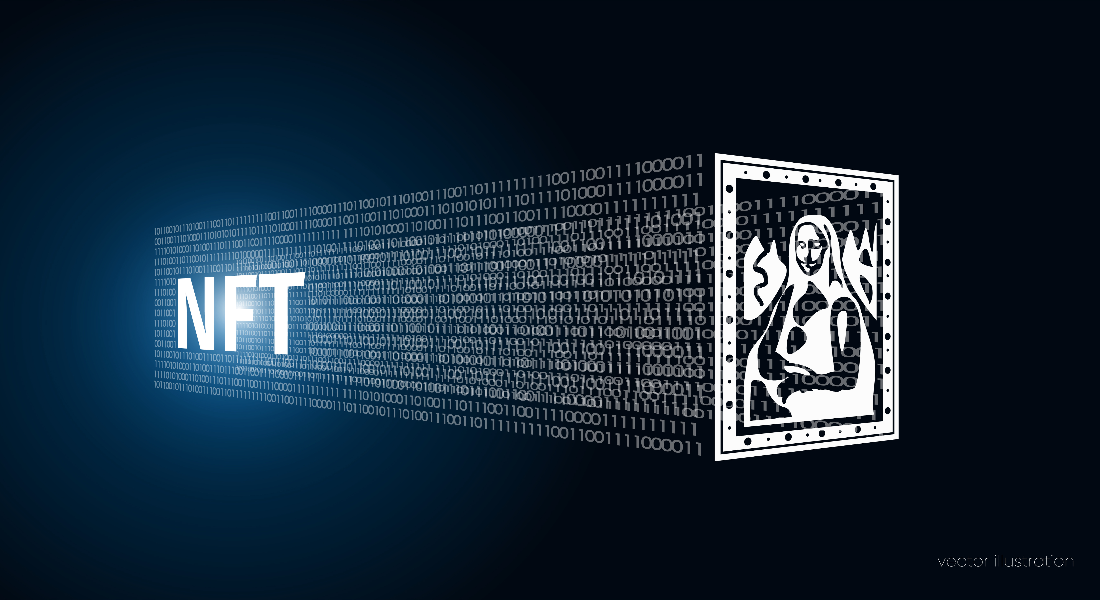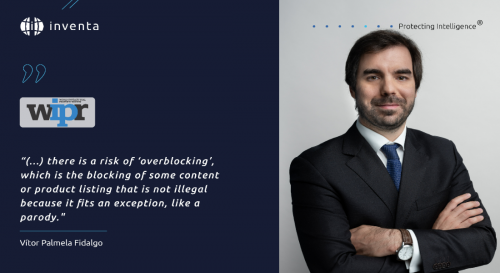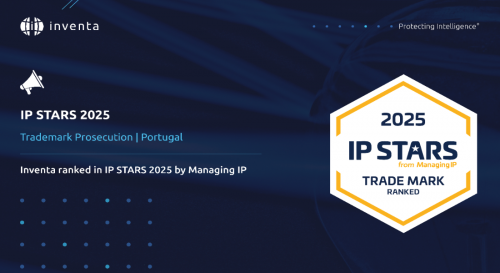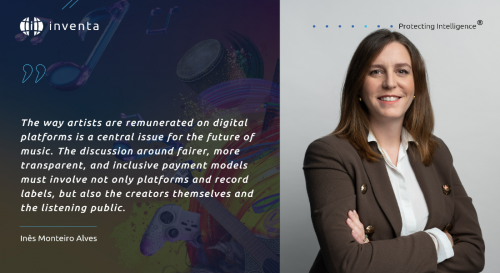
The interrelation between NFTs and Copyright
NFTs (nonfungible tokens) are the hot topic of 2021 and will possibly remain so throughout this decade, due to their technical properties.
Understood as one of the generators of digital technical scarcity due to their nonfungible, NFTs are digital certificates or digital authenticity seals that grant ownership of an asset represented as an NFT verifiable via blockchain entry.
The creator becomes the owner of the original file and, consequently, of a set of authorizations regarding the use of this NFT. Most NFTs are registered on Ethereum's blockchain, a decentralized platform that supports the recording of extra information that differentiates an ETH (Ether - Ethereum's cryptocurrency) from an NFT (unique asset).
An asset represented by NFT can be an immaterial asset, such as meme, tweet, GIF, digital artwork, music, electronic game prop (gun, clothes, etc.), software, etc. or it can be a virtual representation of a material asset, such as painting, real estate, car, game collectable (a player's card, for example), etc. NFTs are created and made available on various platforms, such as Makerspace, OpenSea, Nifty Gateway, Rarible, SuperRare, among others.
Although anyone can have access to an item associated with an NFT, they will only have a programmable certifiable copy of this item, they will not be the owner of the original version. Moreover, this item may still be available online, for example, visible to everyone, so what you acquire is not the item itself, but rather the digitally authenticated version of this item.
The ownership of an NFT allows its owner to use it when listening to the music when exhibiting the artwork, as well as enables it to transfer the ownership of the token to a third party. This digital certificate is securely stored in a digital wallet, while the transaction is carried out and registered in a blockchain. The blockchain transactions are traceable, transparent, immutable and verifiable by anyone. The distributed nature of blockchain platforms, combined with the consensus mechanisms employed, make forging fake transactions unfeasible.
"Copyright remains with the creator of the work of art, painting, music, etc., unless the commercialization of NFT includes the transfer of the property right of the author to the purchaser of NFT, it being certain that the personal/moral right of the author remains in the legal sphere of the creator."
How does it relate to copyright?
Despite these characteristics, the identity of the entities carrying out these transactions are not traceable, as it is impractical to identify the authorship of an NFT. Anyone can use the copyrighted content - of which they are not the owner - to create an NFT unduly and market it on various platforms for this purpose, making cases of art fraud in the virtual environment commonplace.
It should be noted that in addition to the ownership of an NFT does not entitle the owner to the ownership of the item associated with an NFT, as previously mentioned, the ownership of an NFT does not confer its owner the intellectual property of the asset represented in the NFT, i.e. the owner of an NFT does not become the author of the artwork.
Copyright remains with the creator of the work of art, painting, music, etc., unless the commercialization of NFT includes the transfer of the property right of the author to the purchaser of NFT, it being certain that the personal/moral right of the author remains in the legal sphere of the creator.
In this sense, the commercialization of an NFT is made through a smart contract which establishes all the terms regarding the use of this NFT by the purchaser, who will not be able to make indiscriminate use of the token, in case the asset represented in this token is protected by intellectual property, such as copyright.
Thus, this technology presents itself as a new source of income for authors and creative industry players when they create works in the NFT format and market them in the virtual environment - from the granting of licenses - with the advantages of easy asset management and control over the remunerations for royalties, since the artists can automatically add royalties to the digital contracts signed when selling the assets. The advantage of this digital contract is that, as a rule, if the token is resold through a blockchain-enabled marketplace, the royalty payment will be made automatically without the need for any further action by the artist, however, some platforms require the token to have been resold "on-chain" by the same platform that created the NFT, to then offer the resale royalties to the artist. Also, automated distributions of resale royalties can be frustrated by transactions that occur outside of the blockchain.
Despite some benefits to authors, NFTs also carry some uncertainties regarding the author's rights, such as: issuing an NFT of a work without the author's permission; violating the terms of the license granted by NFT; issuing an NFT of an already licensed work and the extent of this license; enforcing the terms and conditions related to an NFT; observing the related rights and image rights of individuals who are exposed in work under the NFT format; among other concerns of authors and creators of NFTs.
Current challenges
Another questionable point of this technology is the environmental impact of the development and maintenance of NFTs since each blockchain network requires a large energy consumption for the continuous operation of the system's computers. In this aspect, entities involved with blockchain technology are working to create new solutions to reduce CO2 emissions.
Thus, it can be observed that the emergence of NFTs, although very recent, is already entailing the need for regulation of various matters on the subject, particularly in civil law - property and transactions -, tax law, environmental law and intellectual property law, specifical copyright.
The regulation of NFTs is not yet a reality and the Financial Action Task Force (FATF) recognizes that NFTs may create the risk of money laundering or terrorist financing crimes so that there is a reason to regulate them.
As part of the Digital Finance package of the European Commission, the “Markets in Crypto-Assets Regulation” (MiCA) is in preparation, which may cover non-fungible digital assets and will have a significant impact on the crypto-asset sector, not only at a European level, given the potential of these rules being followed by companies worldwide. The proposed definition for crypto assets being 'a digital representation of value or rights which may be transferred and stored electronically, using distributed ledger technology or similar technology' includes NFTs so that MiCA will generally apply to NFTs.
The proposal for a Regulation of the European Parliament and of the Council on Markets in Crypto-assets, and amending Directive (EU) 2019/1937, was published by the European Commission in September 2020 and is pending of the joint adoption by the Council and the European Parliament – as a result of an ordinary legislative procedure. The last discussion within the Council was made through the Opinion of the European Data Protection Supervisor, in June of 2021, which made some recommendations to amend the proposal. The proposal has yet to reach the European Parliament to be approved.
The Commission's choice to propose to the MiCA the EU legal instrument of regulation means that, when entry into force, it will have general application, will be binding in their entirety and will be directly applicable in all EU member states – without needing to be transposed into national law.
However, regarding NFTs there is uncertainty about the MiCA’s application because issuers of 'crypto assets that are unique and not fungible with other crypto assets – which would cover NFTs – are not required to publish a prospectus-like 'crypto-asset white paper'. Against the background that any public offering of an NFT would necessarily result in only one transaction, requiring a white paper would also appear disproportionate. In this sense, it seems that the MiCA does not apply specifically to NFTs, however, due to the growing importance of these tokens, there will be a need for this Regulation to define the rules for the use of this new technology soon.
Territory List
There are no results for your search.
- Africa
- Algeria
- Angola
- Benin
- Botswana
- Burkina Faso
- Burundi
- Cameroon
- Cape Verde
- Central African Republic
- Chad
- Comoros
- Congo (Republic)
- Côte d'Ivoire
- Democratic Republic of the Congo
- Djibouti
- Egypt
- Equatorial Guinea
- Eritrea
- Eswatini (Swaziland)
- Ethiopia
- Gabon
- Gambia
- Ghana
- Guinea
- Guinea-Bissau
- Kenya
- Lesotho
- Liberia
- Libya
- Madagascar
- Malawi
- Mali
- Mauritania
- Mauritius
- Mayotte
- Morocco
- Mozambique
- Namibia
- Niger
- Nigeria
- Réunion
- Rwanda
- Sao Tome and Principe
- Senegal
- Seychelles
- Sierra Leone
- Somalia
- South Africa
- South Sudan
- Sudan
- Tanzania (mainland)
- Togo
- Tunisia
- Uganda
- Western Sahara
- Zambia
- Zanzibar
- Zimbabwe
- Africa (OAPI)
- Africa (ARIPO)
- Other
- East Timor
- Macao
- Maldives
- Portugal
- European Patent (EPO)
- European Union Trademark (EUTM)
- International Trademark (Madrid System)
- Patent Cooperation Treaty (PCT)




